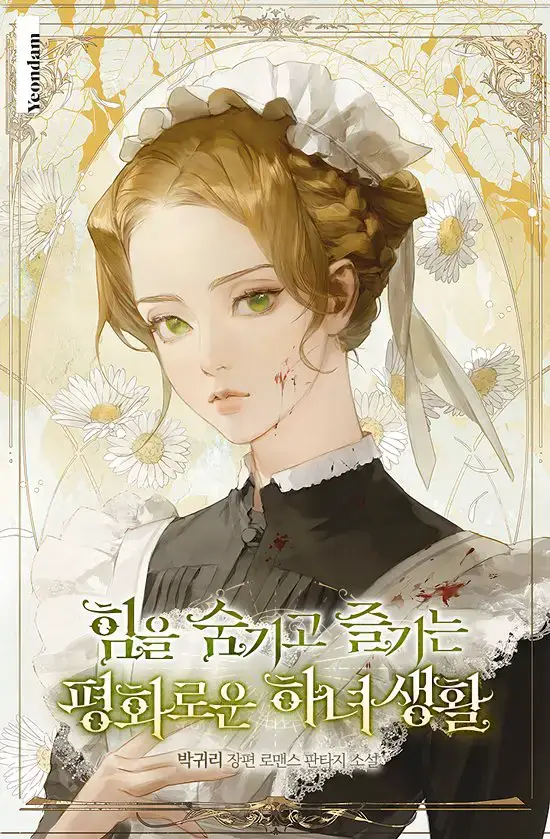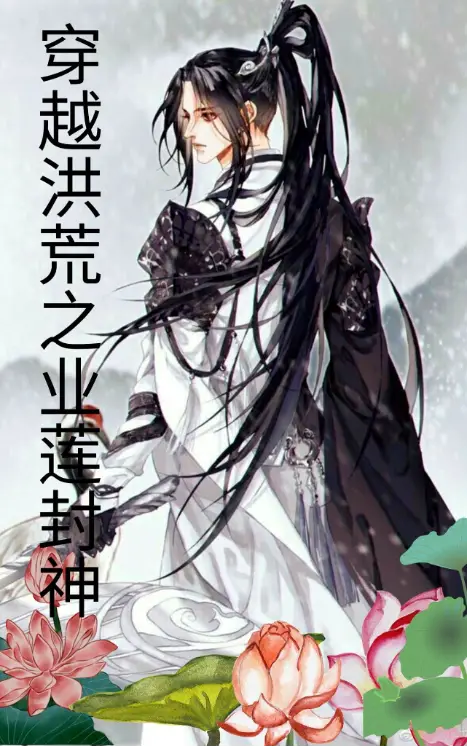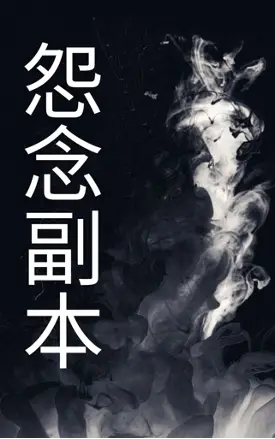“There’s no hope. She has passed away,” Kumakura, who had been crouching down in front of Mori Reiko to check her pulse, lifted his face and announced with a sorrowful expression.
“I don’t think she’s been dead for long.”
“Why? Why on earth did this happen?” Motojima’s face went pale. Tears were welling up in his eyes.
“I don’t know. There don’t seem to be any visible injuries. She may have suffered a spontaneous attack of arrhythmia, or maybe this is the source of it.”
Kumakura gestured to a seemingly lacquered coffee cup lying on the floor. On the whitish carpet, there were brown stains radiating from the coffee.
“Coffee? What do you mean?” Tokizane raised his eyebrows as if he was having a hard time comprehending.
“Reiko’s lips were stained. She may have sought to spit out the coffee she had consumed, but not to the point of vomiting. If this is the case, it’s conceivable that some kind of poison was mixed in.”
Kumakura rose to his feet and met Tokizane’s eyes squarely.
“Poison? Ah… that couldn’t be.”
Tokizane lowered his head and covered his mouth as if in disbelief.
“Do you have any insight into what’s going on?” Kawai approached with a snapping voice.
“Yes. Actually…”
Tokizane’s words were interrupted by Enomoto’s voice.
“Kumakura. This is not that poison, right?”
Enomoto showed a vial on the desk. A white crystal-like substance could be spotted inside. It appeared to have a label attached.
When Kumakura tried to approach and reach for it, he removed his white gloves to examine Mori Reiko’s pulse.
“You can’t touch her with your bare hands!” Hikijii sharply restrained him with a piercing voice.
“Until the police arrive, we have to preserve the scene… Though that being said, it probably won’t have any fingerprints on it.” Kumakura brought his face close to the label and squinted, reading the small letters on the label.
“A, c, o, n… Aconitine.”
“What’s aconitine?” Junko questioned, and Kumakura turned around. His face was flushed as if he’d just gotten out of a hot bath, or perhaps it was owing to his rage.
“It’s an alkaloid-based deadly poison. It is contained in aconite.”
“But why is such a thing here?”
Kawai, a tall man, stood in the center of the room and cast his glance around. Junko was under the impression that they were in a stage performance.
Tokizane coughed and said, “Let me explain. Reiko often employs poisoning in her novels. Lately, when she writes, it has become a habit for her to keep real poison on hand and view it.”
“Does that have to be the actual poison? It doesn’t strike me as having any distinctive characteristics,” Junko asked, obliquely regarding the contents of the aconitine vial. Even if it was aspirin or some other substance, she felt that she wouldn’t be able to distinguish the difference.
“No, you’re wrong. After meeting Tokizane, Mori often asserted that unless you see the real thing, you can’t get a sense of authenticity. It was probably the same case with the poison. Watching it with the belief that it could really kill people created a sense of tension…” Motojima wiped his eyes as he answered.
“Does that mean there existed other poisons besides aconitine?” Hikijii inquired intriguingly.
“Yes, it should be in the drawer there.”
Tokizane pointed to the drawer, and Hikijii opened it by grasping the handle with his white-gloved hand.
“…There’s arsenic, paraquat, and even sodium cyanide! As a mystery writer, you also would have known that possessing such a thing for no legitimate purpose would be a violation of the Poisonous and Deleterious Substances Control Law, wouldn’t you?”
Tokizane silently gave a nod.
“However, how can a poison that can kill people be so easily obtained?” Kawai was not convinced.
“She must have relied on various sources. Reiko, as a well-known novelist, should have been able to elicit cooperation from her fans. Cyanide is readily available at any number of factories. The ingredients in paraquat were not pure, but rather an old rat poison, which can be found lying around in farmers’ warehouses.”
“But where did the aconitine come from? If you don’t have access to a university laboratory, it should not be so easy to acquire.”
After Kumakura pressed on, Tokizane nodded.
“I made that. If I had known this was going to happen…”
“You made it?”
“How did you do it?”
“Why did you do it?”
Several people posed questions at once.
“When Reiko was strolling in the neighborhood, she discovered a colony of aconite with beautiful blue-purple flowers. After researching, she discovered that it is the second most toxic species in the world, second only to Aconitum japonicum subsp. subcuneatum in the Tohoku region and Aconitum sachalinense in Hokkaido. I guess she must have been filled with inspiration by this knowledge. Reiko requested me to try producing aconitine from now on.”
“But doesn’t that demand a great deal of expertise?” Enomoto expressed everyone’s doubts on their behalf.
“I checked the Internet and came across an English site that contains detailed information on the purification process.”
The proliferation of perilous knowledge on the Internet seemed to have no end.
“I repeatedly advised Reiko against doing this. It was written that picking aconite itself is hazardous. Yet, when she pleaded with me for help, I couldn’t say no. Being a part of Reiko’s life was the meaning of my existence━ my Ikigai[i],” said Tokizane, his eyes downcast. “So, I used the root with a high aconitine content and followed the procedure described in the article for crude purification with organic solvent acid and methanol. In all honesty, I was not certain if the resulting product was aconitine or not. All I cared about was producing white crystals that resembled aconitine, and if only Reiko could have been satisfied with that.”
“However, either you were too skillful or you just ended up producing a very high purity product by chance,” Kawai sarcastically replied.
“No, I wouldn’t be so sure,” Kumakura interjected, folding his arms. “Not only does aconite contain aconitine, but it also includes several other highly poisonous alkaloids, including mesaconitine, hypaconitine, and jessaconitine. This may not be a single crystallization of aconitine, but if the impurity is also a deadly poison, the danger level is not much different from that of pure aconitine.”
“In any case, the police will verify this when they conduct an investigation. Please report to the police immediately,” Motojima resolutely remarked.
“I understand. Let’s go downstairs and use the satellite phone. But first.”
Tokizane glanced at the box-shaped clock on the shelf, mulling over the situation.
“…Now it’s 9:44, isn’t it? Time may be of the essence.”
“What do you mean?”
Junko also observed the clock. Underneath the silvery dial with a blue dotted line border, a distinctive design of three rotating rings of sky blue, green, and red were inscribed, which somehow managed to rotate.
“I would like to ask you all a question. Do you think Reiko committed suicide?”
Everyone fell silent for a while.
“I don’t believe that.”
The stillness was shattered by Motojima.
“The Mori I knew would absolutely not have been the one to commit suicide like this.”
Kumakura sighed, “But in the past, Reiko had a propensity to become depressed all of a sudden.”
“Even when she was married to me, there were times when she would lock herself in her room, claiming that she was tired of everything.”
“If my memory serves me right, after Bastet’s death, she continued to stay in that state of mood,” Tokizane recalled, squinting his eyes.
At that moment, Junko felt goosebumps all over her body for some reason.
It wasn’t a logical sensation, but rather an instinctive one as if the death of the cat was linked to the owner’s death.
“B-But it’s strange that she committed suicide at a time like this. Even though this was the night she invited everyone over,” Natsumi seemed to have finally regained her composure from the shock somewhat. Although her voice was a little unsteady, she was still firm.
“Earlier you said that Mori was spitting out the coffee. If that’s the case, doesn’t that prove that she didn’t voluntarily swallow the poison?” Kumakura tilted his head in contemplation at Junko’s suggestion.
“You can’t necessarily be so sure of that. Aconitine should have a numbing effect on the tongue. Even if someone is dead set on killing themself, they are likely to spit it out or vomit it up reflexively.”
“…Is this perhaps a suicide note?”
Kawai, who had been wearing white gloves the whole time, picked up a piece of notepaper on the desk.
“Let’s have a look at it.”
Everyone gathered around the desk, avoiding the body, and read the scribbled words on the notepad.
Mystery Clock. The Eternal Boy. Neverland. I don’t want to live in a filthy world anymore.
“Indeed, the handwriting appears to be Mori’s but… If this is a suicide note, Mori would have written it more concisely,” Motojima noted, cocking his eyebrow.
“Hmph! Have you not read the famous short story ‘Mimetic Suicide Note’? The protagonist left a suicide note on the back of a leaflet with scribbles similar to this one. The scribbled text is so ambiguous that it is difficult to tell at first glance that it is a suicide note,” Hikijii said reproachfully.
“No, I am ashamed to admit that I have not read it. I have no idea that Mori had written such a work.”
“What are you talking about? That is my masterpiece of short stories,” Hikijii proudly proclaimed.
“Enomoto. What are your thoughts on this?” Tokizane turned to Enomoto.
“I don’t believe it is suicide at all,” Enomoto responded promptly.
“Why do you say so?”
“Today marks the first time I have had the opportunity to meet Mori, but I can tell that she has a remarkably high sense of aesthetics. That much is apparent from the way she spoke and from her magnificent collection. If she had committed suicide, I’m sure she would have considered the possibility that her death would be discovered by everyone.”
Enomoto took a glance at the corpse. Junko was taken aback. Why hadn’t she realized it until now?
“If you were Mori, you would have at least taken the poison while lying on the sofa there. Judging from her appearance, I can only assume that she was poisoned.”
Tokizane nodded profoundly.
“I totally agree with you. In other words, this is a homicide case.”
Tokizane’s voice suddenly adopted an unsettling timbre. After walking in broad strides to the vertical locker in the corner of the room, Tokizane punched in the code on the keypad.
As soon as the unlocking sounded, he opened the metal door and withdrew a hunting rifle from within. Everybody stood there in a daze, unable to comprehend the abrupt change of events.
“If so, that means there is a murderer inside. Everyone, please do not move. Should you make even the slightest suspicious movement, I will shoot you dead on the spot without hesitation.”
Tokizane readied a horizontal double-barreled hunting rifle and slowly waved it in a clockwise direction, perhaps to let everyone catch a sight of the muzzle.
“Tokizane, please calm down. There is no need for you to do anything. Once the police show up, everything will be cleared up.”
Motojima recovered from his shock and attempted to persuade Tokizane somehow.
“No, I don’t think so. Even if the perpetrator is identified, there is no guarantee that adequate evidence will be presented in court to convict them. Furthermore, beyond that, there’s something else I can’t tolerate.”
Tokizane’s flat voice conveyed a sense of horror instead.
“Even if the culprit is identified and convicted, the death penalty probably won’t be imposed. How can you say justice has been served? Reiko, who was beloved by us here and by many of her readers, will never again be able to speak, write novels, share her love, or indulge in a glass of wine. On the other hand, what will fate hold for the culprit? After just a little more than ten years of confinement, they will be out in the world. There is no balance between crime and punishment, no matter how you break it down.”
Perhaps in anticipation of a rebuttal, all eyes fell on Junko, who was a lawyer. Nevertheless, Junko did not dare to comment on the matter. The gap between retribution and the law was arduous to bridge with words or logic, and in the first place, she did not want to say anything that might upset the gun owner under this circumstance.
“However, I think it would be complicated to identify the culprit at this point in time. They know that if anyone finds out they did this, they will be shot and killed, which makes it impossible for them to confess. Meanwhile, we have neither the tools nor the technology for forensics. Without DNA or microbiological analysis, it would be extremely challenging to uncover any evidence.”
As Enomoto persuaded him, Tokizane listened quietly, but then slowly shook his head.
“It is true that we lack the advantages of forensic science, and we are like the ‘Okappiki’[ii] of the Edo period. However, we do possess two advantages. First, there is no need to have enough evidence to convict in court. I’ll execute the sentence as soon as I’m positive who the culprit is.”
“Are you sure you understand what you’re saying? Once you do that, you’ll be a murderer, too.”
Kumakura was about to press the issue, but when Tokizane aimed his gun at him, he drew back in alarm.
“…It doesn’t matter. All I want is to finish avenging Reiko’s death.”
“And? Tokizane. What’s the other advantage?”
Kawai appeared to be contemplating that as an actor, he should reinforce his resolve under such a circumstance and queried in the tone of a famous detective who would be depicted in a drama.
“Each of you will now give your testimony, but it will be up to all of you to judge the veracity of the testimonies. This is an interrogation method that is not easy for the police to implement. If there is any irregularity or discrepancy, I expect that someone is likely to notice it.”
Tokizane had a faint smile on his face.
“Moreover, we happen to have members who are well versed in crime and mystery. No matter how devious the culprit may be, will they be able to deceive us all?”
T/N:
[i] Ikigai means the meaning of living, a very profound word. There’s no concrete term for the definition. Everyone has their own interpretation of what Ikigai is supposed to be
[ii] Okappiki is a private detective during Edo era




